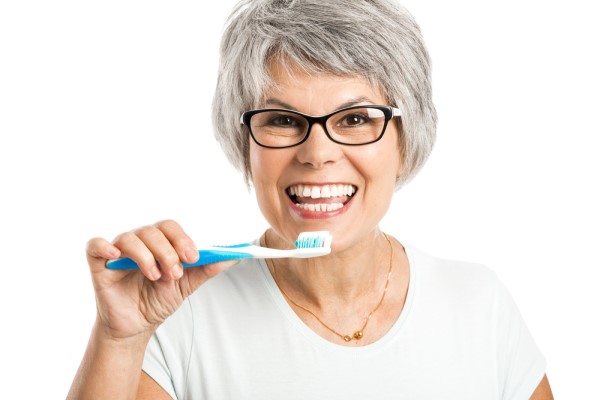What Happens to Your Natural Teeth as You Age?

Dental care is an investment that pays off immediately and in the long term. Taking good care of your mouth improves the chances that your teeth will last a lifetime. Good oral habits are a lifestyle in and of themselves. They require a commitment on your part, which is where this piece comes in. Learning about the effect of aging on your mouth is a great motivator to keep you caring for your teeth.
The benefits of good dental care on oral health
Oral health covers the wellbeing of the entire oral cavity, including the teeth and the structures that support them. Every part of the mouth feels the effects of both good and bad oral habits. These are the results of taking care of the mouth over many years:
- Good oral hygiene goes a long way to prevent cavities, tooth decay, and gum disease
- The person who sees a dentist as soon as they notice any oral health problem is unlikely to develop complex oral health issues
- A healthy diet makes for healthy teeth, healthy gums, and a healthy body
- Avoiding habits like smoking minimizes the chances of tartar and gum disease
Adopting these habits limits the effects of aging on the teeth, gums, and jawbone. Ignoring them seems to accelerate the aging process of the mouth. These are the effects of aging on natural teeth.
1. Yellowing teeth
The enamel should be milky-white, with the sheen and translucence of a pearl. In contrast, the dentin or inner tooth is yellow. In youth, the enamel is thick enough to obscure the yellow coloration of the dentin. With age, wear, and tear, the enamel thins. The thinner the enamel gets the more visible the dentin becomes. This is how yellow teeth develop as you age.
2. Wear and tear
The enamel has to be one of the hardest substances in the body. It withstands massive crushing and shearing forces over the course of a lifetime. This results in the gradual wear of the biting surfaces of the teeth. The extent of the wear varies from person to person. As an example, people who clench their jaws may suffer a greater degree of wear than people who do not.
3. Gum recession
It almost seems like the teeth get longer with age, except that it is not an optical illusion. The gums do actually recede with age, which makes the teeth longer. Older people are more likely to suffer from gum disease, which presents as severe gum recession and loose teeth. In such scenarios, gum recession can lead to loose teeth or outright tooth loss.
4. Dry mouth
Old age often comes with medication that can dry out the mouth. A dry mouth is a good environment for harmful mouth bacteria, which can cause oral health issues like tooth decay.
5. Smaller nerves
The nerves in the teeth ‘shrink’ with age, which reduces the tooth’s ability to sense pain. This can result in dental problems that evade detection until they become severe.
The small decisions we make every day make all the difference
Dental care includes the way we treat our teeth every day. These small decisions add up, with their effects becoming evident the older we get. It is never too early or too late to take up good oral habits.
Get in touch with our office and talk to our helpful staff. They will be happy to set up an appointment where you can find out all you need to know about oral health and aging. Our dentist is happy to provide you with the excellent dental care that your teeth deserve.
Request an appointment here: https://www.smilesbydesignhuntsville.com or call Smiles by Design, PC at (256) 660-3233 for an appointment in our Huntsville office.
Check out what others are saying about our dental services on Yelp: Routine Dental Care in Huntsville, AL.
Related Posts
A healthy and clean mouth requires more than brushing and flossing daily. Professional deep teeth cleanings can help prevent severe oral health issues, particularly beneficial for those with moderate to severe gum disease or plaque buildup. Deep teeth cleanings address issues that regular cleanings may miss or not be able to fully address, promoting healthier…
If you need to get your teeth cleaned regularly, you probably know that the dental cleaning process itself isn’t exactly fun. Still, it’s worth enduring these uncomfortable moments in order to protect your smile and keep your mouth clean and healthy. If you’re getting your teeth cleaned regularly or if you just want to learn…
A dental exam is performed to determine the condition of the patient’s oral health. The goal is to detect any concerns as early as possible so that they do not worsen or cause other health issues. This article discusses the types of oral issues your dentist may look for during a dental examination and cleaning…
The term "dental deep cleaning" may not be thought of as a dental procedure. However, a dental deep cleaning is more than regular cleaning of the oral cavity. It is typically known as scaling and root planing. It is done when tartar (hardened plaque) have accumulated below the gum line, creating pockets that turn into…
